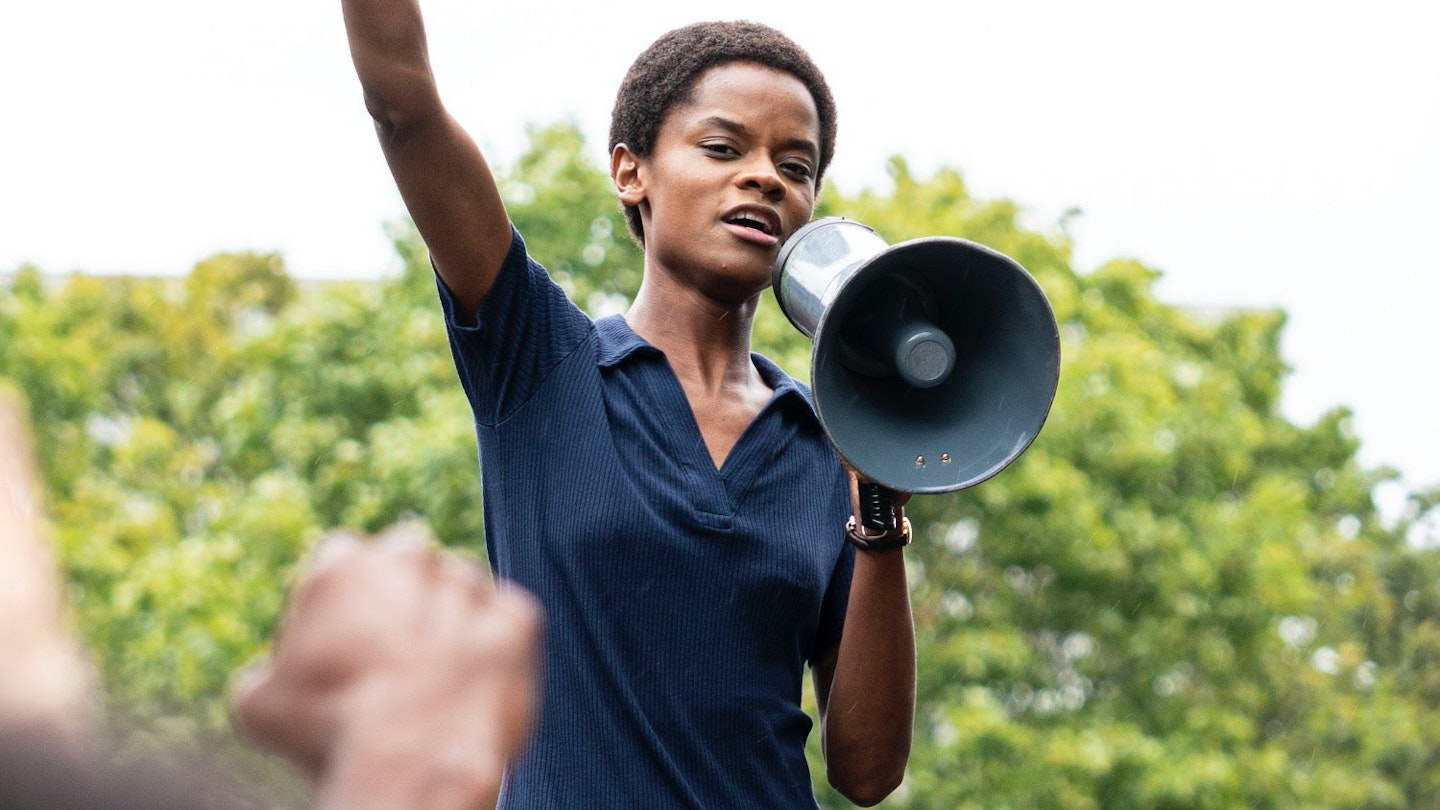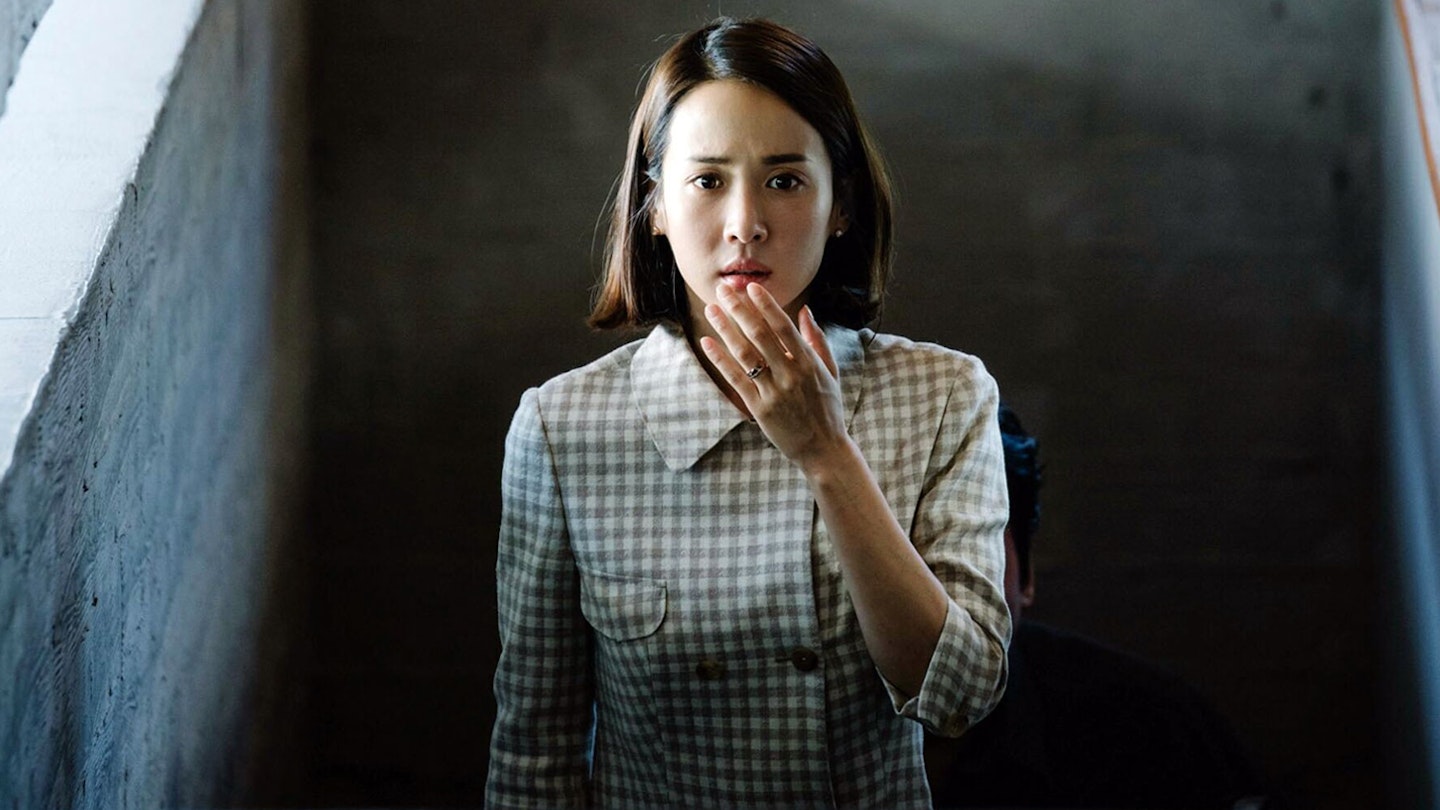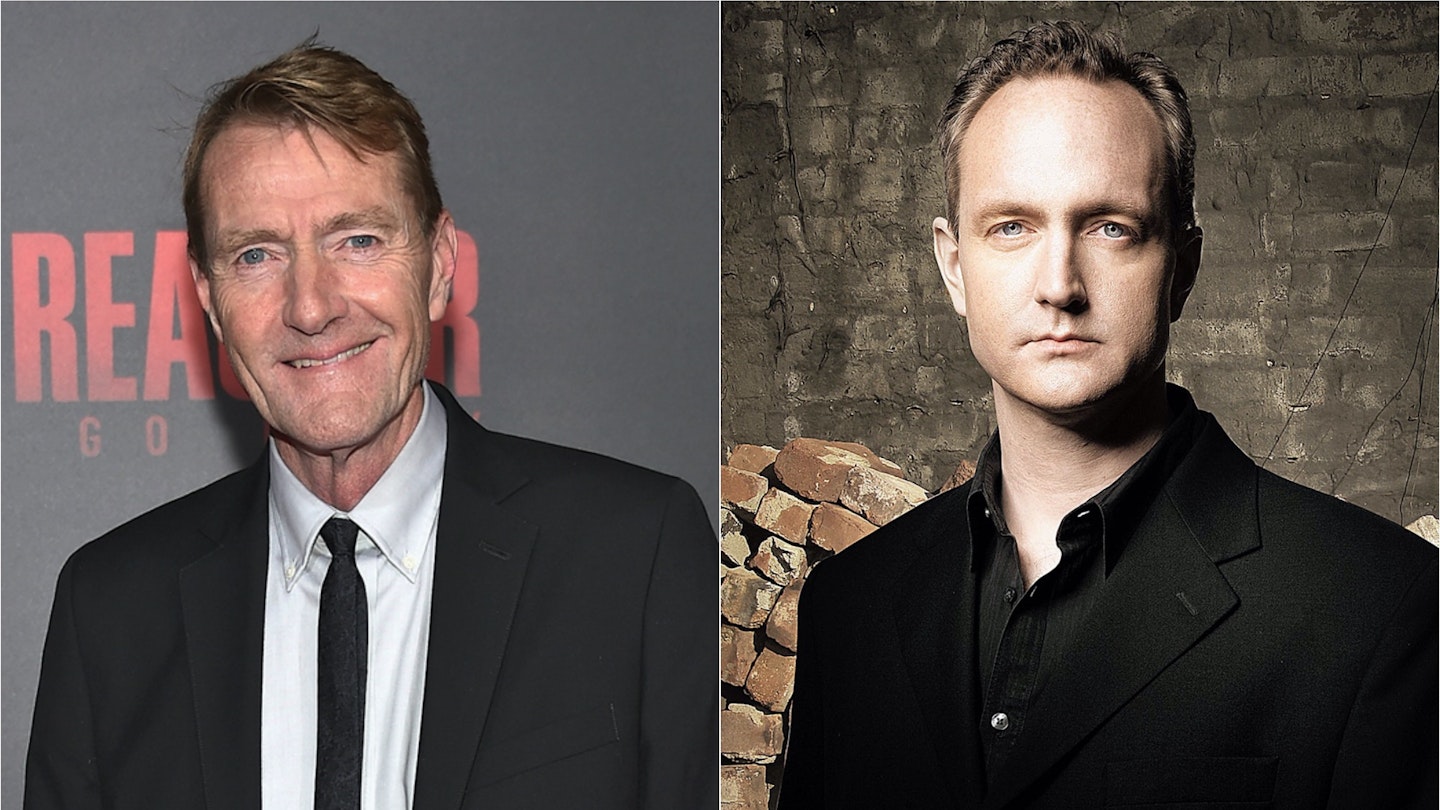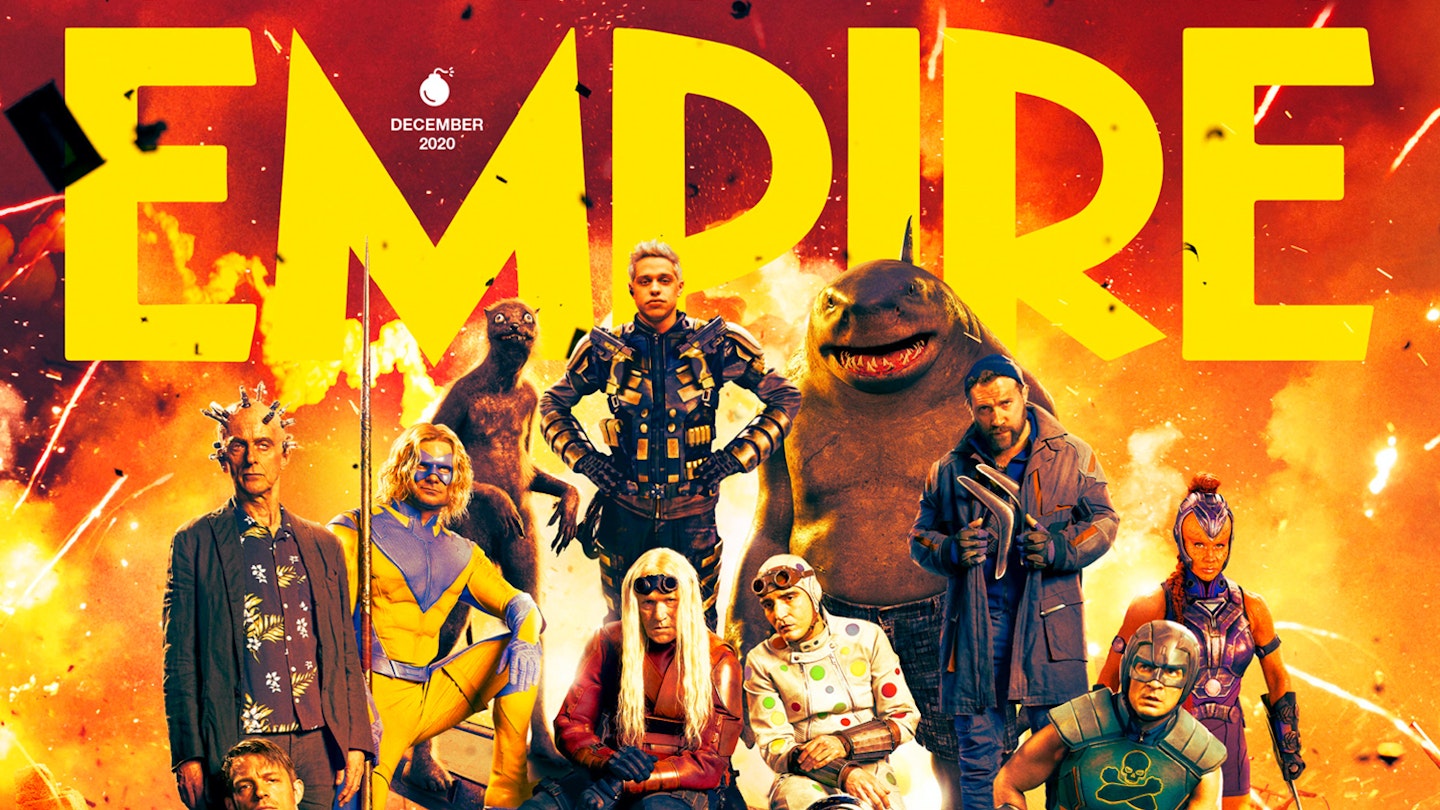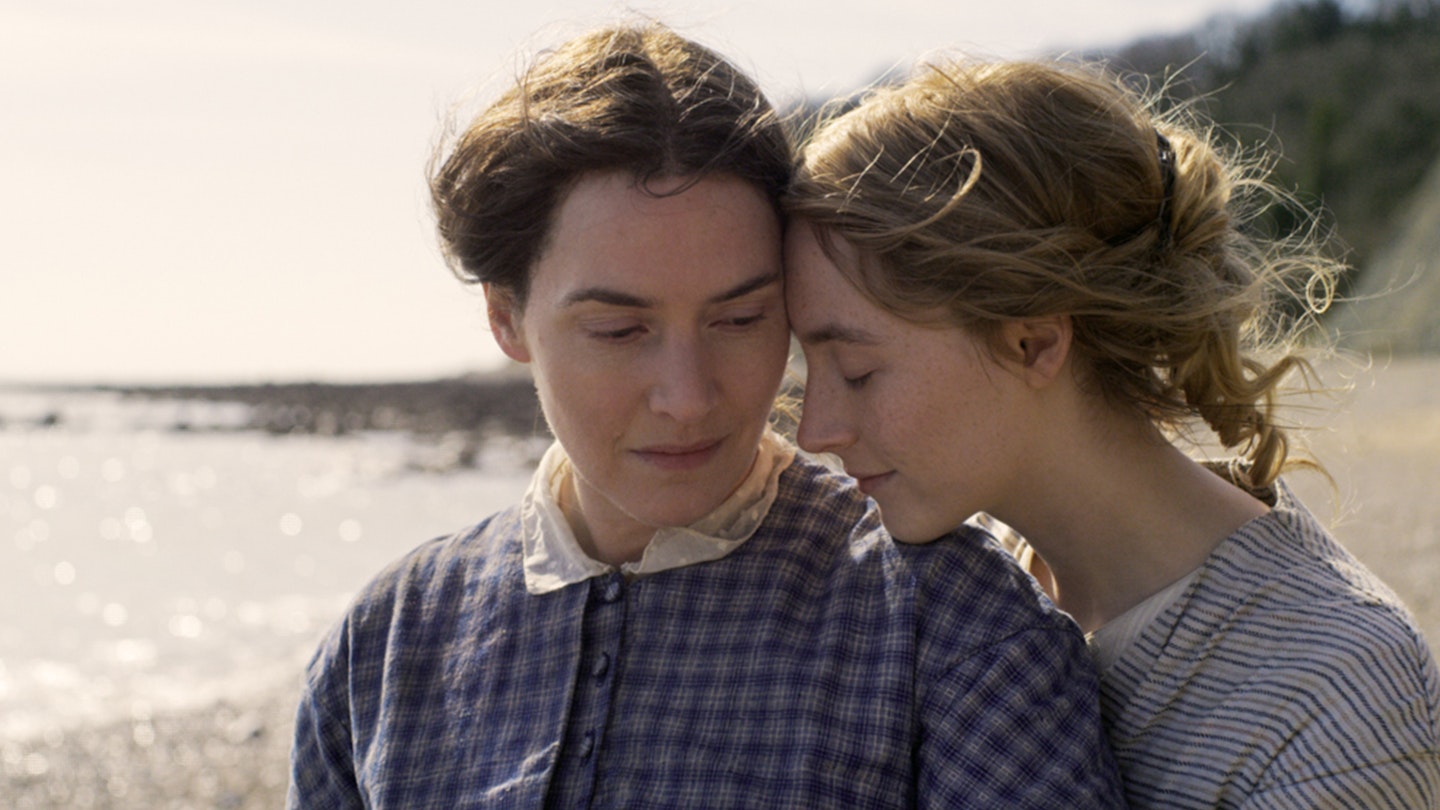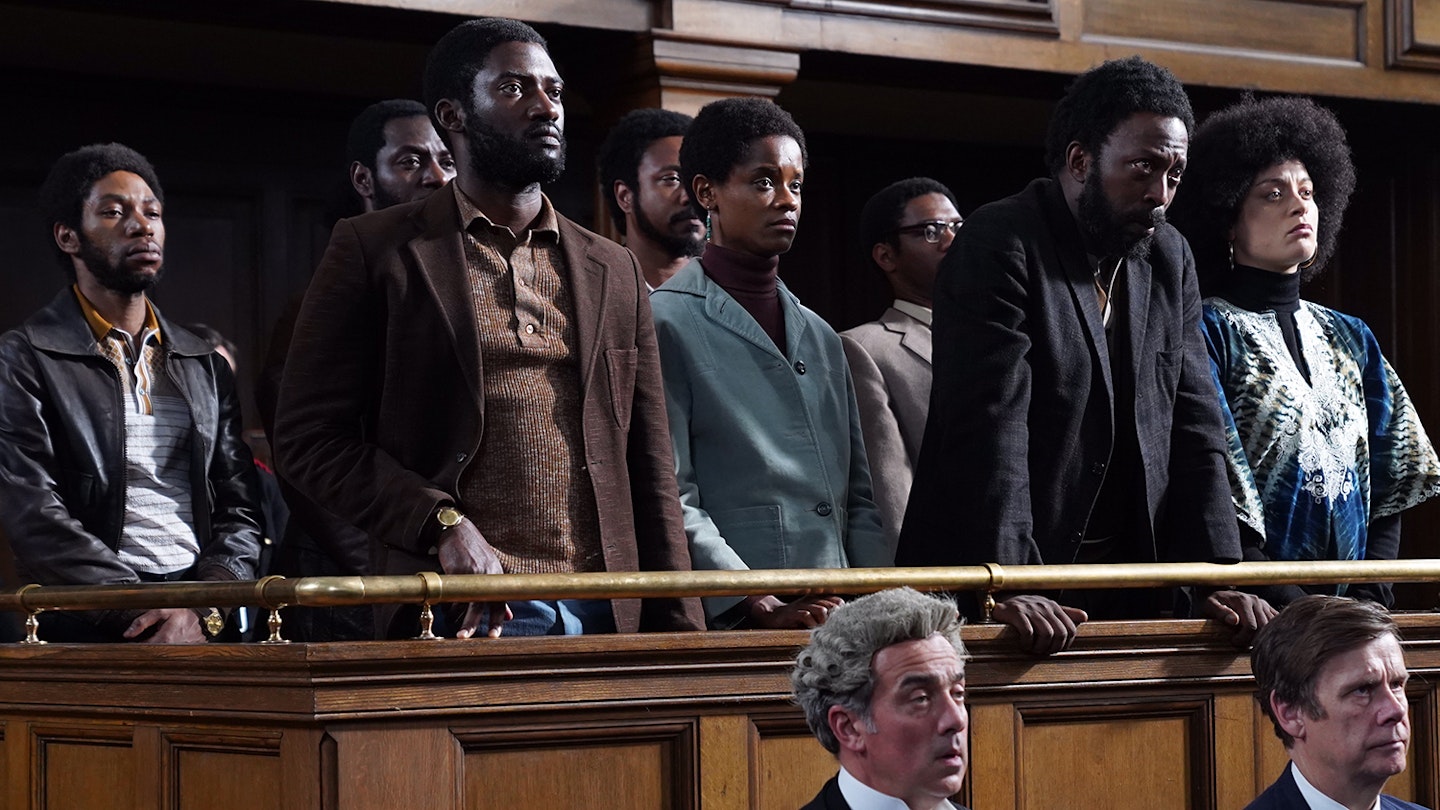If Steve McQueen has a trademark then it is an unblinking willingness to take his time, be it in the wincing horror-ride of Lupita Nyong’o’s Patsey in 12 Years A Slave or the opening moments of Widows, as the camera lingers on Viola Davis and Liam Neeson kissing. And it is present and correct, in multiple senses, throughout Mangrove: the searing curtain-raiser of Small Axe, his anthologised, five-film document of the triumphs and trials of West Indian life in late 20th-century Britain.
It isn’t just that Mangrove features those strange, signature moments of prolonged scrutiny (it is almost certainly the first time in screen history that something as innocuous as a colander, dropped during a police raid, has managed to evoke such devastating disquiet). It’s more that, in a macro sense, McQueen lets this story of a pivotal tipping point in UK race relations breathe. And the result is that Mangrove is a 124-minute epic that feels both propulsive and unhurried; an exhumed piece of Black British history that is by turns a courtroom drama, character study and joyful community portrait.
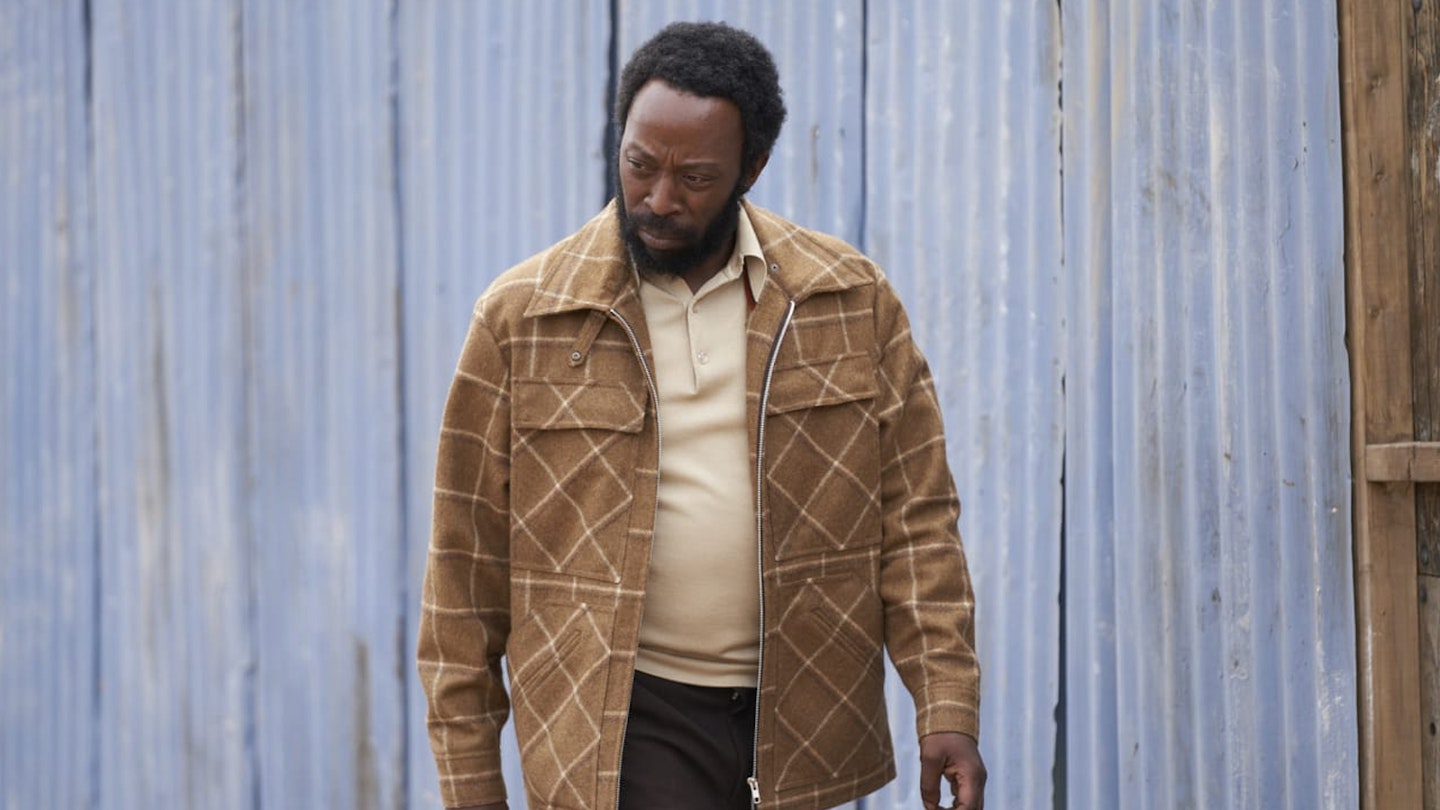
Yes, there is maybe an unavoidable didacticism to some of the dialogue and storytelling (“We mustn’t be victims, but protagonists of our own story,” says Letitia Wright’s character at one point, practically looking down the lens). But McQueen’s long-bubbling move to the small(ish) screen succeeds because of its almost imperceptible slow-build. Meaning that by the time a climactic moment of redemptive catharsis comes, it hits you with an emotional magnitude that lingers long after the credits have rolled.
Fundamentally, the plot tracks two turbulent years in the life of Trinidadian businessman Frank Crichlow (Shaun Parkes on commanding, soulful form). This means we go from the 1968 opening of his Notting Hill Caribbean restaurant, the Mangrove, through to its emergence as a vital hub for the Black activist community, years of targeted police persecution, and up to the 1970 ‘incitement to riot’ trial faced by Crichlow and eight fellow protestors which, ultimately (50-year-old spoiler alert), led to a landmark not-guilty verdict on the most severe charges.
More than anything, Mangrove is a showcase for too many unforgettable performances to name.
Given that wrenching trajectory — and its freshly pertinent themes of police brutality, institutionalised racism and anti-racist uprising — the great surprise of Mangrove’s early moments (and even some later stretches) is that McQueen brings buoyant brightness to what is essentially a story of hard-fought triumph over prejudice. Late 1960s West London is rendered with affectionate specificity, there’s a crackling, sitcom ease to Crichlow’s Caribbean back-and-forths with Mangrove employees Aunt Betty (Llewella Gideon) and Dalston (Gary Beadle), and one ravishing tracking shot — following the Mangrove faithful as they dance to steel pan music in the street — points to the joyful release and sense of home that was especially vital to Black people during this era of open hostility.
Which is not to say that McQueen flinches when it is time to show what this community was up against. The repeated police raids on the Mangrove, when they come, are presented as visceral frenzies of shoved bodies and smashed crockery; sustained acts of petty, dehumanising gang barbarism where the weary anger of the Black men and women under attack is always the focus. The most striking illustration of this comes in the second half — when the Nine are in the dock, Alex Jennings’ judge has joined the fray and the feel of Mangrove has decisively shifted to that of a legal procedural — and Crichlow is manhandled into a court cell, Parkes screaming at the “savages” that have put him there, the camera fixed on both his implacable rage and the white-hot glare of light from a tiny window.
It’s an indelible image that’s a testament to the agile cinematography of Shabier Kirchner and to the metallic pulse of Mica Levi’s score. But it also highlights the fact that, more than anything, Mangrove is a showcase for too many unforgettable performances to name. Malachi Kirby lights up every scene with a nuanced interpretation of the late Darcus Howe’s sonorous magnetism. Letitia Wright is sparky and commanding as Altheia Jones-LeCointe. And Rochenda Sandall imbues Barbara Beese with a compelling, livewire volatility and outsider chippiness.
But it is probably Parkes who leaves the biggest impression. As Crichlow, he is able to convey bottomless anguish, world-weariness and resolute strength with just a flick of the heavy-lidded eyes and a lock of the jaw. And, fittingly, it is his face that is almost the last thing you see in Mangrove, as McQueen once again lets his camera idle and wordlessly suggests that, rather than an ending, the Nine’s hard-won triumph was just the beginning of an ongoing struggle.
